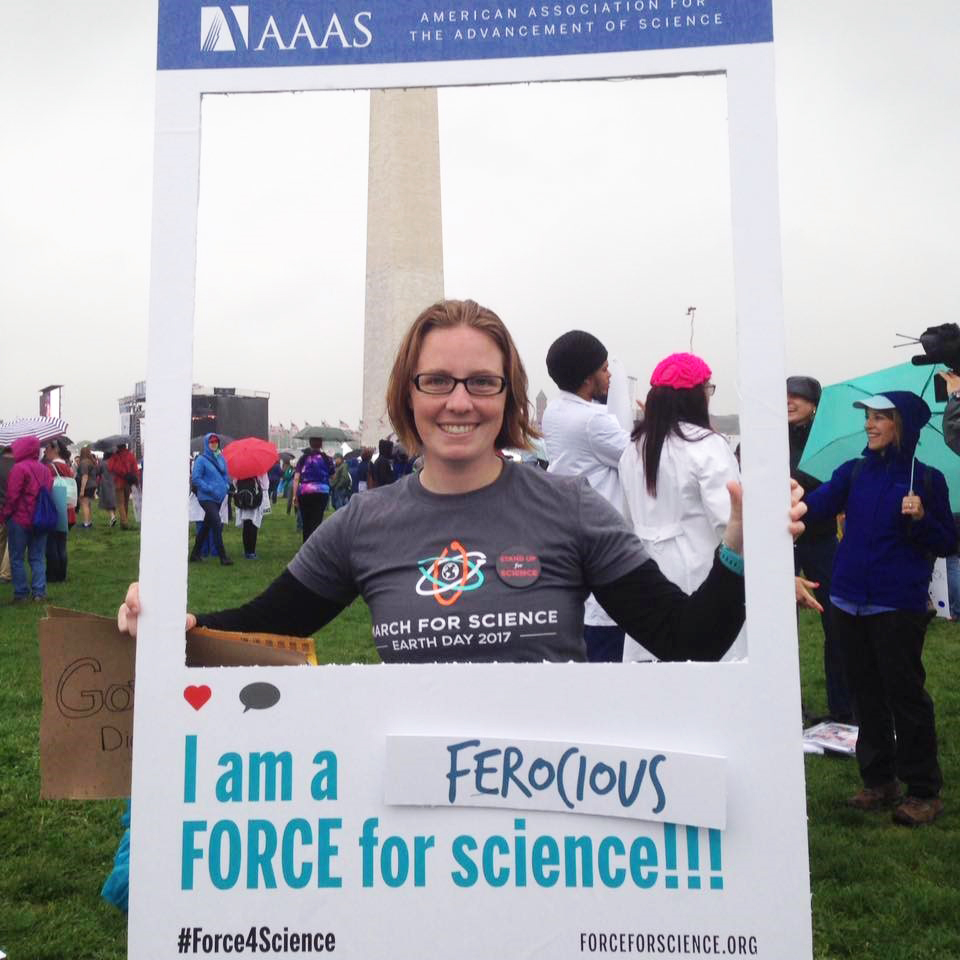The holidays can be a trying time for graduate students. We are frequently bombarded with two questions: “When will you graduate?” and “What will you do when you’re done?” The first question is a sort of moving target — Ph.D. programs do not have a specified length or graduation time — and the second is generally a problem we push off to the future. An increasingly common response is simply, “Not academia.”
In 2015, the National Science Foundation reported that the percent of Ph.D.s committing to postdoctoral positions in the United States had declined every year since 2010, in all science and engineering fields except psychology and social sciences. As “alternative” career paths become the norm, graduate students face a new set of uncertainties, and it can be challenging to take time away from our thesis research to focus on career preparation. To gain some firsthand advice on how to transition outside of academia, I turned to Rebecca Tweedell, a recent Johns Hopkins graduate.
Rebecca earned her Ph.D. last October from the Cellular and Molecular Medicine program at Johns Hopkins, and she recently started working at MediTech Media as a medical writer. I hope you find her advice and experiences as enlightening and encouraging as I do.
When did you decide you wanted to pursue writing as a career after your Ph.D.?
Rebecca graduated from Purdue University with a major in microbiology and a minor in English, but when she began her Ph.D. she thought she was leaving her English minor behind to focus entirely on science. However, throughout graduate school she says she became aware of how research and writing are closely intertwined, and by the middle of her third year she had decided to focus on a career in science writing.
How did you prepare yourself in graduate school for your position as a medical writer?
“I got as much writing experience as humanly possible, no matter what audience I was writing for,”Rebecca remembers. She wrote for the Biomedical Odyssey blog, and started her own monthly blog focused on infectious disease. This personal blog served as a space to foster her style for planning and editing her work, and both blogs helped her build a diverse portfolio for job applications. She also worked with her thesis advisor to review and edit as many manuscripts and grants as possible, and, toward the end of her Ph.D., she started freelancing as an editor for a communications company. One particular benefit from this experience is it provided Rebecca exposure to more diverse manuscripts outside of her specific field.
As always, networking played an important role in her career preparation. She joined the National Association of Science Writers, and by attending their events she was able to meet other science writers and get a better grasp on what types of jobs she wanted to pursue. This ultimately helped her decide that a position as a medical writer aligned best with my interests and skills.
What advice do you have for navigating discussions about nonacademic career paths with your thesis adviser?
"My best advice is be upfront, and the earlier the better," Rebecca says. When she was considering which lab to join for her thesis research, she discussed her nonacademic career interests with my future adviser. By letting your mentor know early on what your goals are, you stand the best chance of receiving helpful advice.
How did you carry out your job search? Were there any job websites that were particularly useful? Did you use the career office at Johns Hopkins?
"I did most of my searching online through Indeed and Glassdoor, but I also applied to some jobs that came from the Hopkins career office email lists. Indeed and Glassdoor worked the best for me. Additionally, Glassdoor can provide a lot of information about companies, like reviews from other employees and salary ranges. I did not use the career office directly, mainly because I started my search while I was in Florida. I did attend the career fair hosted by Hopkins, where I met a couple medical writers and had great conversations," Rebecca says.
After graduating in October, she spent approximately 15 hours a week on job search-related tasks: searching, applying or doing writing assignments. She applied to approximately 70 jobs and received eight phone interviews. When companies do these first-round screening calls, they also give applicants a writing assignment, and she submitted assignments for four of those eight positions. Finally, she did one on-site interview and accepted the position at MediTech before hearing back from the other three companies.
Did you notice a difference when you were applying for jobs before versus after you defended your thesis?
"Definitely! Before my defense, I did not get a response from any jobs I applied for. But after I defended, I started getting calls," Rebecca remembers. She thought it was bizarre that even when my resume showed that she was defending in two weeks, companies still did not reach out for interviews. If you are close to defending your thesis and worried about job offers, keep this in mind!
Do you have any other reflections/nuggets of advice?
"There are so many jobs within the category of 'science writing.' It’s really important to be aware of this and know that not all jobs are the same. Many focus on writing for lay audiences, which isn’t what I wanted. I was really discouraged for a long time until I met some people who were “medical writers” instead of “science writers.” So don’t be discouraged! There are so many different ways to go with writing. If that’s something you’re interested in, you’ll be able to find your niche."
